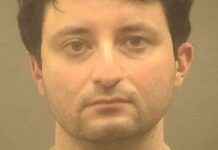Warns that the facts investigated overlap with the judicial investigations into La Camarga in Barcelona and with ‘Land’
MADRID, 19 Oct. (EUROPA PRESS) –
The judge of the National Court (AN) that investigates the private businesses of José Manuel Villarejo has provisionally filed the separate piece related to the entries and searches carried out in 2013 in Method 3 and the arrest of its former owner, Francisco Marco, by not find indications that behind these police actions there was an assignment to the commissioner’s business group, CENYT, to obtain the information stored in the detective agency.
In an order from last Monday, to which Europa Press has had access, the head of the Central Court of Instruction Number 6, Manuel García Castellón, agrees to the provisional dismissal of this separate piece number 27 of ‘Tándem’ –macrocause also known as ‘ Villarejo case–because “it has not been possible to specify the indications of criminality that gave rise to its opening”.
The instructor highlights that “the existence of any order, budget, service or execution project in this regard has not been verified, which differentiates this piece from the rest”, in which “the same contracting pattern is analyzed by the CENYT Group”, which would consist of commissions from private clients to Villarejo that he would carry out with his corporate network but using the police means at his disposal.
In addition, García Castellón states that the facts investigated so far in this piece 27 overlap with two other judicial investigations. On the one hand, the one made by the Barcelona courts on the recording of the conversation that took place in July 2020 in the Barcelona restaurant of La Camarga between Alicia Sánchez-Camacho, the then leader of the Catalan PP, and Victoria Álvarez, a former partner. of the eldest son of former president Jordi Pujol.
On the other, he recalls that, although this investigation was based on a complaint filed by Marco, where he pointed out that the searches at the Method 3 headquarters in Madrid and Barcelona and his subsequent arrest were the result of Villarejo’s alleged maneuvers to seize sensitive information handled by the detective agency, which could be crimes of discovery and disclosure of company secrets, are crimes that coincide with those aired in piece 3.
“In said piece (3), which is in the trial phase, the alleged seizure of the documentation, its treatment and the infraction of a public official, such as former commissioner Villarejo, of the duties inherent to his Therefore, such facts cannot be assessed again in this piece (27), at the risk of incurring a ‘bis in idem'”, explains García Castellón.
Piece number 3 is ‘Land’, one of the three that have been judged in the last year in the National High Court and that are now pending sentence. During the oral hearing, the focus was on a report on the estate of the deceased businessman Luis García Cereceda that Method 3 prepared for his widow, Silvia Gómez Cuétara, within the framework of a family dispute over the inheritance, and which ended in hands of Villarejo.
The judge emphasizes that “there is no evidence, for the moment, that the information from Method 3 has been used in any other piece apart from those that are still being investigated” at the National High Court.
To this it adds that, in any case, the aforementioned illegal detention or the regularity of a police procedure carried out in Barcelona far exceeds the jurisdiction of this court, without prejudice to the fact that such requests are filed with the competent judicial bodies to it”.
García Castellón thus aligns himself with the Public Prosecutor’s Office, which last July asked him not to extend the investigation of this piece 27, although then the judge chose to exhaust the investigations by questioning a former Method 3 detective: Julián Peribáñez.
From his statement as injured, the instructor now indicates, “there have not been enough indicative elements to corroborate the existence of the facts that are investigated in this piece (27) or to rule out duplicity or procedural overlap” with number 3 .
In that judicial appearance, Peribáñez said that he collaborated with the Internal Affairs Unit (UAI) of the National Police –the one in charge of said searches and arrests– at its request but denied any relationship with Villarejo. In this sense, he assured that he never coincided with the commissioner, according to sources present in that statement.








